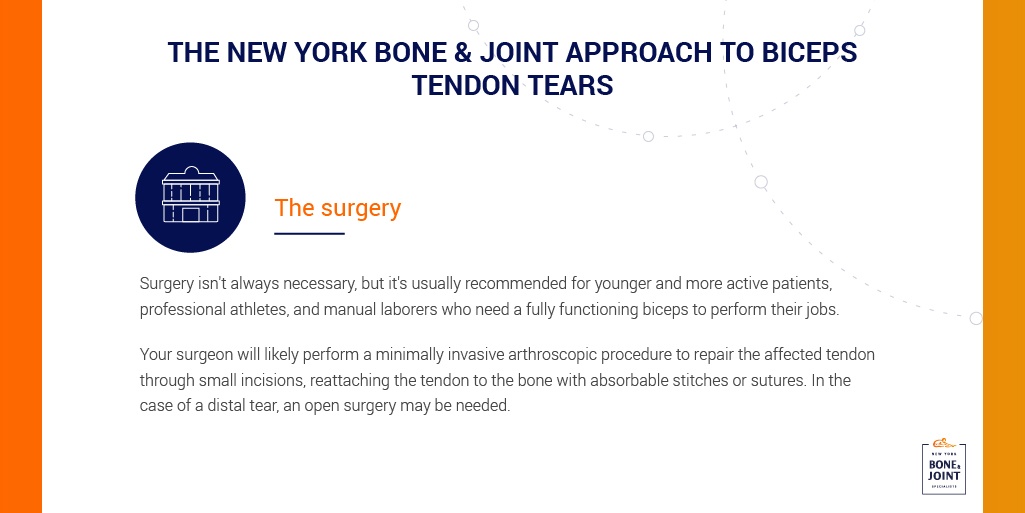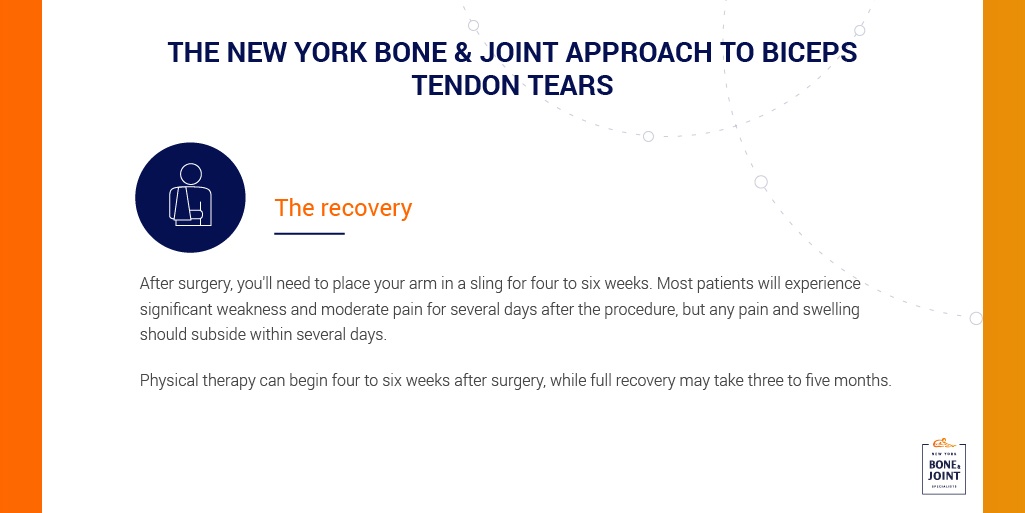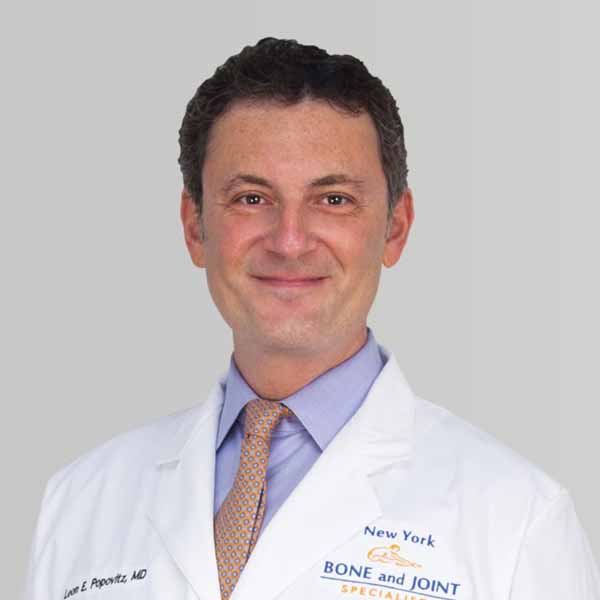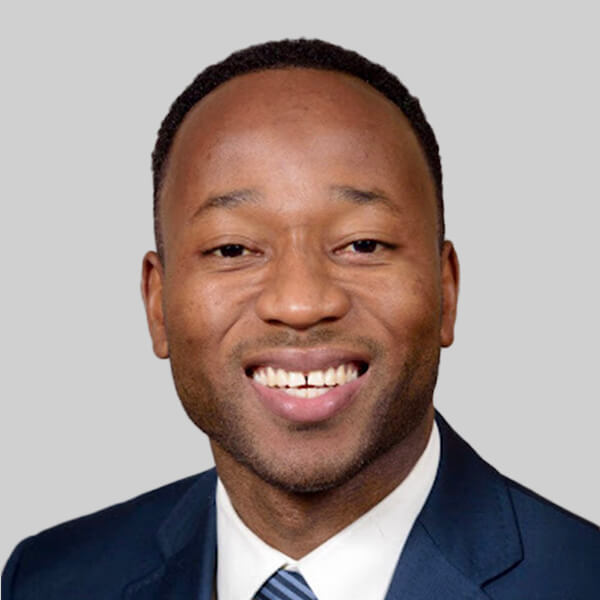WHAT IS A BICEPS TEAR?
A biceps tear is a rupture of one of the three tendons that connect the biceps to the shoulder and the elbow. The tear can be either partial or complete. Since the biceps enables bending and rotation of the arm, a tear of any tendon can more or less prevent the arm from functioning.
Biceps Tendon Tear at Elbow
The biceps is attached to the elbow by a single tendon, which is called the distal biceps tendon. A tear of this tendon is often caused by sudden trauma or lifting a heavy object. The tear is usually complete, resulting in a total separation of the muscle from the bone.
Biceps Tendon Tear at Shoulder
The biceps is attached to the shoulder by a pair of proximal tendons, the long head and short head. The long head tendon connects the biceps to the socket of the shoulder, while the short head tendon connects it to the shoulder blade. The long head is fairly susceptible to tears, while tears of the short head are quite rare.
BICEPS TEAR SYMPTOMS
The most common symptom of a biceps tear is a sudden, severe pain in the upper arm or at the elbow. Some patients also report hearing a sudden “pop.” Other symptoms include swelling, visible bruising, weakness in the shoulder or elbow, and trouble rotating your arm with the palm facing down. In some cases, the tear may cause a prominent bulge to protrude from your arm, since the tendon is no longer holding the muscle in place. This protuberance is often referred to as a “Popeye Muscle” because of its resemblance to the arms of the famous animated sailor.
BICEPS TEAR TREATMENT OPTIONS
Treatments for biceps tears vary from patient to patient. A proximal biceps tear in a younger, more active patient or a heavy laborer is usually repaired arthroscopically through several very small incisions, but proximal and distal tears in older patients without significant physical demands often respond well to icing, rest, and non-steroidal anti-inflammatories. Regardless of your age or the severity of the tear, your doctor may also prescribe some stretching and strengthening exercises to rebuild the muscles and restore the biceps’ range of motion.
BICEPS TEAR SURGERY & RECOVERY
Biceps Tear Surgery
A torn biceps doesn’t always require surgical intervention, but surgery may be necessary if you’re younger or more active or if a more conservative treatment plan doesn’t alleviate symptoms. It’s also recommended for professional athletes or manual laborers who can’t perform their jobs without a fully functioning biceps.
Should you undergo surgery, your surgeon will likely operate on the affected tendon through very small incisions. If you’ve suffered a proximal tear, the procedure can be performed with two incisions; if you’ve suffered a distal tear, you’ll likely need open surgery, though some surgeons can repair it after making only one or two small incisions. During the procedure, the tendon is reattached to the bone with stitches or small absorbable implants.
Biceps Tear Surgery Recovery Time
Complications associated with biceps tear surgery aren’t common, but recovery isn’t immediate. After surgery, you’ll need to keep your arm in a sling for four to six weeks. Your shoulder may feel particularly weak and you might suffer from moderate pain in the days after surgery, but the pain and swelling should subside over the next several days.
After you’ve made sufficient progress, you’ll begin a physical therapy program that’s designed according to your specific needs. Your rehabilitation plan will most likely consist of a set of strengthening exercises and stretches.
Most patients can return to work within a week or two of surgery, provided that their jobs don’t require use of the biceps. In most cases, patients should notice significant improvement in four to six weeks, and most should completely recover in four to six months. Patients with more physically demanding jobs, however, may need to refrain from working for three to four months, and professional athletes may need to wait four to six months before returning to their sport.
_________________________________
EXPERIENCING PAIN? DO YOU HAVE AN INJURY?
Our Specialists are here to help.
Book an appointment with NYC’s best orthopedic specialists to discuss your condition. Fill out the form below and you will receive a call from our office within 5-10 minutes. We’ll book an appointment at a time and location that work for you, and send you a reminder by email.












